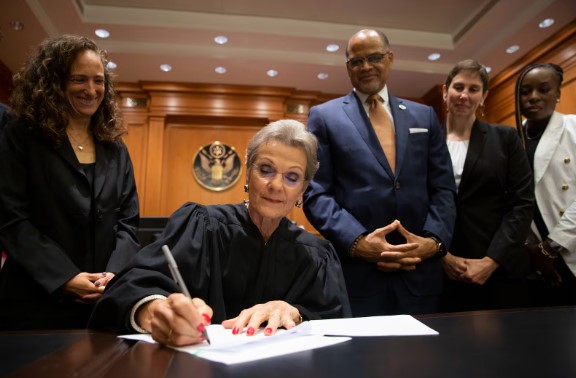NYC still hasn’t made most special education fixes required by court order two years ago

Chalkbeat NY | After a federal judge in 2023 ordered city officials to make dozens of reforms to more swiftly provide special education services to families who won legal disputes, top Education Department officials embraced the extra oversight.
Yet almost as soon as the order was handed down, the city began to miss deadlines. Now, two years later, the Education Department has failed to comply with most of the order’s requirements.
At the time of the ruling, former schools Chancellor David Bank displayed an unusual level of support for a court action targeting his own agency.
“We, too, believe that change is long overdue,” he said. “We are moving aggressively to set a new course.”
But out of the 51 steps outlined in the court order issued by Manhattan federal Judge Loretta Preska, the city has implemented just 21 of them, according to a July report from a court appointed monitor. Some of the requirements are more than a year overdue.
As a result, special education experts warn that thousands of families are likely to continue facing lengthy delays for special education services and payments. There is little evidence that the court order has prompted the city to significantly speed up the process in the vast majority of cases, said Rebecca Shore, the litigation director at Advocates for Children, which brought the lawsuit that prompted the court order. Independent audits have yet to show significant progress.
Shore hoped that the court-ordered reforms “would actually help students get the ordered services that they require more quickly,” she said. “That’s still not happening.”
The court order was designed to resolve longstanding problems with the city’s special education system. Families often wait months or even years for the Education Department to implement services or make payments after they win them from an administrative judge. (The number of special education cases heard by administrative judges has exploded in recent years, with nearly 20,000 alone last school year.)
The delays mean children may go without the transportation, physical therapy, counseling, and tutoring services they’re entitled to — or their parents may be forced to pay out of their own pocket. In other cases, families may not receive tuition payments for private schools they are owed after successfully arguing their children could not be properly served in the city’s public schools.